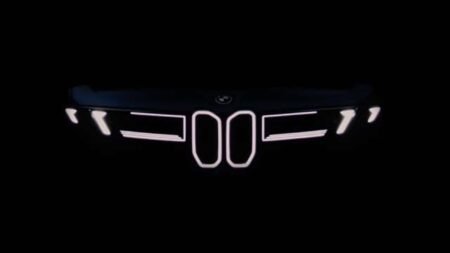Audi’s current lineup could certainly use more pizzazz. With the TT and R8 now discontinued, Ingolstadt no longer sells a sports car. Heck, there isn’t even a coupe or convertible in sight.
Thankfully, the new Concept C aims to change that in 2027, when the production version reaches the market. Audi says the road-going model will barely differ from the show car, aside from the addition of door handles, sensors, and a few other minor tweaks.
The Concept C is more than just a new sports car wearing the Four Rings. It previews a fresh design language that Audi plans to roll out across the lineup under Chief Creative Officer Massimo Frascella, who took the role in June 2024. The German luxury brand wants to embrace “radical simplicity” by “reducing everything to the essential,” both inside and out.
Audi is borrowing from the TT’s playbook, but the Concept C also nods to other icons. It’s essentially a “greatest hits” compilation of coupes, drawing inspiration from the R8 supercar, the 1991 Avus concept, Auto Union race cars, and even a hint of the 2000 Rosemeyer concept. While it first appears to be just a coupe, the show car also doubles as a roadster.
Photo by: Audi

Photo by: Audi

Photo by: Audi
At least in concept form, the two-seater features an electrically retractable roof with two panels, representing a first for Audi. Whether that reaches production remains uncertain. In keeping with recent concepts, such as the Jaguar Type 00 and production cars like the Polestar 5, there’s no rear window. Instead, Audi fitted three horizontal slats, one of which integrates the third brake light.
In terms of size, the Concept C is closer to the R8 than the TT. Audi states that it measures 178.0 inches in length, 78.0 inches in width, and 50.3 inches in height, with a 101.1-inch wheelbase.
It rides on two-tone 21-inch wheels and weighs a reasonable 3,726 pounds. That’s about the same as an R8 Spyder. The platform remains a mystery, but we’ve been told both rear- and all-wheel-drive setups are possible. An 800-volt electrical system promises ultra-fast charging.

Photo by: Audi
Inside, the uncluttered exterior design carries through with a minimalist interior Audi describes as “shy tech.” Not a fan of the 10.4-inch tablet rising from the dashboard? Neither are we. Thankfully, it can be tucked away. Like in older Audi models, the infotainment screen folds neatly into the dash. Real controls made of anodized aluminum mean you’re not forced to use the screen for everything. Even the steering wheel badge is crafted from metal rather than flimsy plastic.
Whether the production version of the Concept C will be related to Porsche’s upcoming electric Boxster and Cayman replacements remains to be seen, but the link would make sense. The new 718s are due in 2026, presumably with a stronger focus on driver engagement than Audi’s take. Enthusiasts might hope for cheaper, gas-powered versions, but it’s in vain. Both Porsche and Audi will sell their new sports cars exclusively as EVs.
The automotive world has undergone significant changes since 1995, when the TT concept was introduced. Three decades later, the Concept C is attempting to spark a similar reaction. It marks a step in the right direction for Audi as it seeks to rebound after years of trailing BMW. The coupe/roadster may prove the nicest expression of the brand’s new design language.

46
Source: Audi
Audi is preparing for a busy 2026 with the launch of an entry-level EV and new RS performance models from Audi Sport. How much of Concept C’s sleek design will translate to mainstream body styles, such as sedans and SUVs, remains to be seen. Inspired by the 1936 Auto Union C and the third-generation A6, its vertical grille is touted as the “central element of the new Audi face.” This feature, along with a new four-element light signature, is expected to spread across the lineup.
In this new era, it’s encouraging to see Audi seemingly move away from split headlights and fussy design details. The company has already abandoned fake exhausts and pledged to improve materials after admitting cabin quality had slipped. All of this is good news, and a sports car is exactly what Audi needs to revitalize its image.
A gas engine for the production version would make it even better, greatly boosting its odds of success in a niche segment where buyers still crave ICE. The same could be said of Porsche’s next-generation Boxster and Cayman. Are you listening, Volkswagen?
Read the full article here














